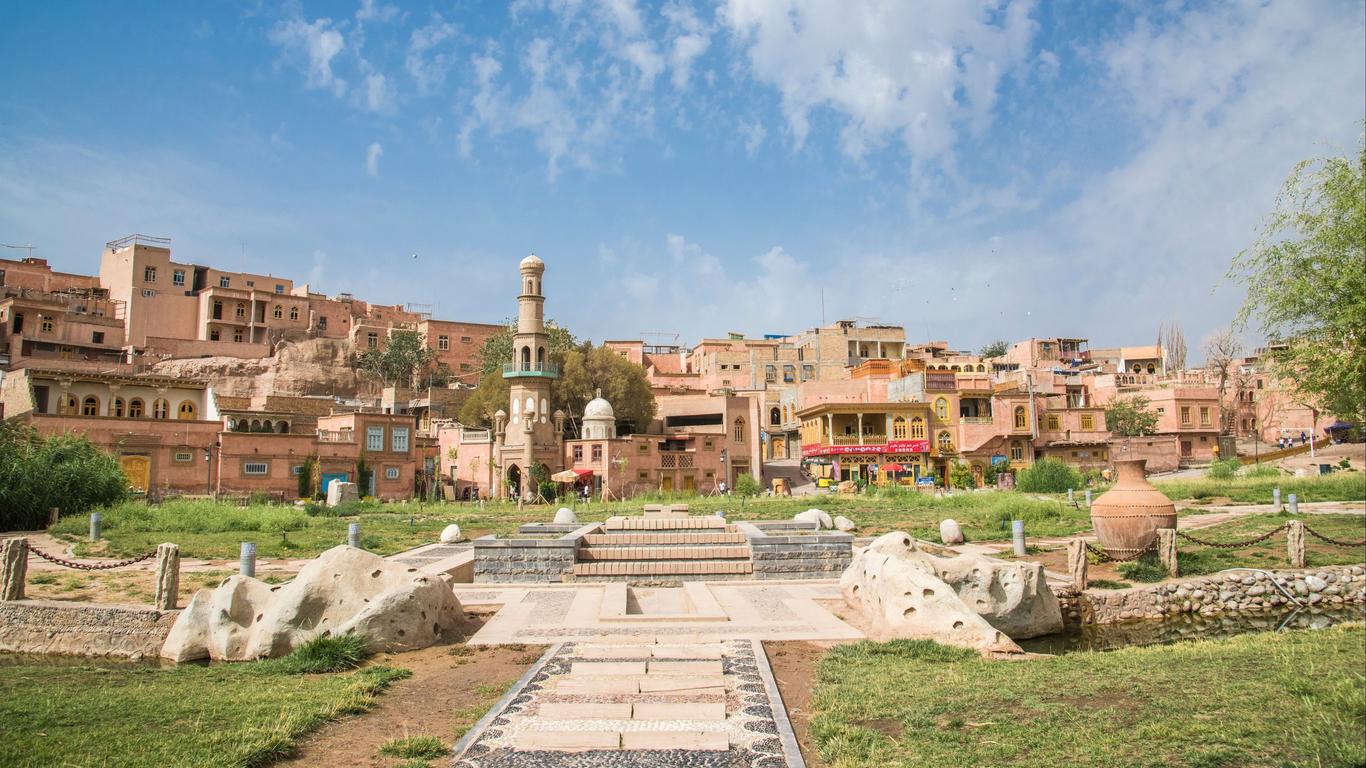The westernmost city in China, Kashgar is an oasis settlement and Silk Road trading post near the border with Kyrgyzstan, Tajikistan, Afghanistan and Pakistan. It lies at the meeting point of numerous cultures, with not only the Chinese but also Turkic, Mongol and Tibetan empires having ruled throughout its more than 2,000-year history.
The highlight of a visit to Kashgar is wandering around its Old City which is considered one of the best-preserved traditional Islamic cities to be found in Central Asia today. It’s home to the 15th century Id Kah Mosque, the largest of its kind in China, whose walls are covered with yellow glazed tiles and decorated with inscriptions from the Quran, with three minarets towering above. Kashgar is also home to one of the last large-scale statues of Mao still standing in China which watches over the recreational space of People’s Park. It features an artificial lake and children’s playground, as well as an Uyghur-style cultural palace, orchards and a zoo. Kashgar is famed for its Sunday Market which is one of the largest in Central Asia with farmers coming from the surrounding agricultural regions to sell their fruit and vegetables alongside livestock, silk, carpets, wooden and copper handicrafts. To the north-east of the city is the elaborate mausoleum of Afaq Khoja, a highly revered political and religious leader who is considered a saint among some Uyghur Muslims. Built in the 17th century, the mausoleum contains the tombs of five generations of his family and is among the holiest Muslim sites in Xinjiang.
There are domestic flight connections from the Kashgar Airport, as well as rail connections across China from the Kashgar Railway Station. Buses link the city to Islamabad in Pakistan along the Karakorum highway, as well as to Bishkek in Kyrgyzstan over the Torugart and Irkeshtam Passes.
The city that is now Kashgar was believed to have been settled during the 1st millennium BC as an oasis encampment for the nomadic tribes of Yuezhi, Usuns and Saks as they roamed the Taklamakan Desert. By the 2nd century BC, the Yuezhi tribes had founded the Kushan Empire, one of the most powerful states in the ancient East and with political ties to the Roman Empire, transforming Kashgar into a major commercial hub along the Silk Road.





